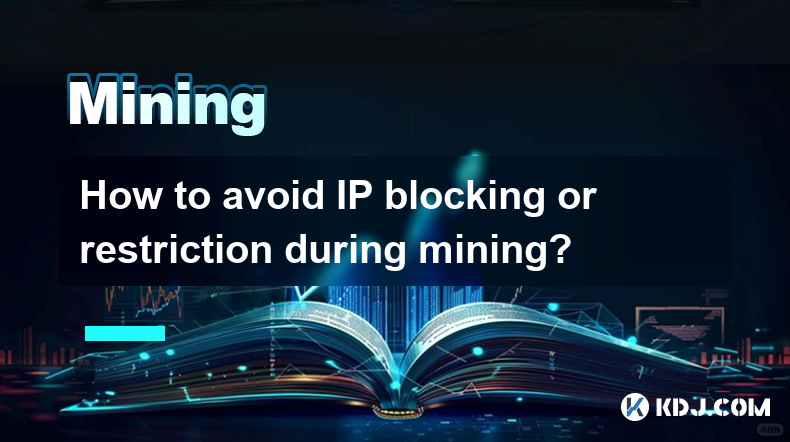-
 Bitcoin
Bitcoin $84,412.2676
-0.67% -
 Ethereum
Ethereum $1,578.6729
-0.92% -
 Tether USDt
Tether USDt $0.9997
-0.03% -
 XRP
XRP $2.0641
-1.56% -
 BNB
BNB $590.2565
1.09% -
 Solana
Solana $133.1528
3.43% -
 USDC
USDC $1.0000
0.01% -
 TRON
TRON $0.2486
-2.49% -
 Dogecoin
Dogecoin $0.1551
-0.16% -
 Cardano
Cardano $0.6195
1.38% -
 UNUS SED LEO
UNUS SED LEO $9.0448
-3.89% -
 Chainlink
Chainlink $12.4389
0.95% -
 Avalanche
Avalanche $19.1160
0.32% -
 Toncoin
Toncoin $2.9801
3.00% -
 Stellar
Stellar $0.2386
1.48% -
 Shiba Inu
Shiba Inu $0.0...01174
-0.95% -
 Sui
Sui $2.1028
0.11% -
 Hedera
Hedera $0.1609
1.18% -
 Bitcoin Cash
Bitcoin Cash $334.5478
3.76% -
 Polkadot
Polkadot $3.6383
2.11% -
 Litecoin
Litecoin $75.0599
-0.04% -
 Hyperliquid
Hyperliquid $16.5153
3.75% -
 Dai
Dai $1.0001
0.01% -
 Bitget Token
Bitget Token $4.3581
0.06% -
 Ethena USDe
Ethena USDe $0.9991
0.00% -
 Pi
Pi $0.6183
-0.05% -
 Monero
Monero $216.0344
-1.40% -
 Uniswap
Uniswap $5.1688
-0.28% -
 OKB
OKB $50.4625
-2.46% -
 Pepe
Pepe $0.0...07178
0.05%
Is the privacy policy of mining app transparent?
Crypto mining app privacy policies vary widely; users must compare apps, checking data collection, usage, sharing, and security details before granting access to personal information and device resources. Independent audits bolster trust.
Mar 19, 2025 at 09:30 am

Key Points:
- The transparency of mining app privacy policies varies significantly. Some apps are upfront and detailed, others are vague or lacking.
- Key areas to examine include data collection practices, data usage, data sharing, and data security measures.
- Understanding the implications of granting access to personal information and device resources is crucial.
- Users should compare privacy policies across different mining apps before making a choice.
- Independent audits and security reviews can provide additional insights into an app's security and privacy practices.
Is the Privacy Policy of Mining App Transparent?
The question of transparency in the privacy policies of cryptocurrency mining apps is a critical one for users. The level of transparency varies dramatically across different applications. Some apps provide comprehensive and easily understandable privacy policies detailing exactly what data they collect, how it's used, and with whom it's shared. Others, however, offer vague or minimal information, raising concerns about potential misuse of user data.
Understanding what constitutes a transparent privacy policy is essential. A truly transparent policy will clearly articulate the types of data collected. This includes personal information like email addresses, IP addresses, and device identifiers, as well as potentially more sensitive data related to mining activities. The policy should also explain the purposes for data collection. This might involve account management, performance analysis, or targeted advertising.
A transparent policy will also specify how the collected data is used. This may include improving the app's functionality, personalizing user experience, or complying with legal obligations. Crucially, a transparent policy will detail whether and with whom the collected data is shared. This could involve third-party service providers, law enforcement agencies, or marketing partners. Finally, a transparent policy will describe the security measures implemented to protect user data from unauthorized access, use, or disclosure. This might include encryption, access controls, and regular security audits.
Many users unknowingly grant mining apps extensive access to their devices. This includes access to the device's hardware resources, network connectivity, and storage. This broad access is necessary for the mining process but also increases the potential for data breaches or misuse. A transparent privacy policy should explicitly state the extent of these permissions and justify their necessity. Users should carefully review these permissions before installing and using any mining app.
Comparing privacy policies across multiple mining apps is crucial for making an informed decision. This allows users to identify apps with robust privacy protections and avoid those with vague or concerning policies. Look for policies that are written in clear, concise language, avoid legal jargon, and provide specific details about data handling practices.
Independent audits and security reviews can offer additional assurance about an app's privacy and security practices. Reputable security firms often conduct audits to assess the robustness of an app's security measures and identify potential vulnerabilities. The availability of such audits can significantly increase user confidence in the app's commitment to protecting user data. The absence of such audits, however, should raise a red flag.
The use of encryption in data transmission and storage is a vital aspect of data security. A transparent privacy policy should specify the type of encryption used and the level of protection it provides. Furthermore, the policy should detail the procedures implemented to handle data breaches or security incidents. This should include notification protocols for affected users and steps taken to mitigate further risks.
The legal jurisdiction under which the mining app operates also plays a significant role in data privacy. Different jurisdictions have different data protection laws and regulations. Understanding the legal framework governing the app's data handling practices can help users assess the level of protection afforded to their data. A transparent privacy policy should clearly state the applicable laws and regulations.
The absence of a privacy policy, or a policy that is excessively vague or difficult to understand, should be a major cause for concern. Users should avoid apps that lack transparency in their data handling practices. It's always better to err on the side of caution and choose an app with a clearly articulated and easily understandable privacy policy.
Frequently Asked Questions:
Q: What data do mining apps typically collect? A: Mining apps typically collect device information (like model, OS), IP address, mining performance data, and potentially email address for account creation. Some might collect more depending on their features.
Q: Can I mine crypto anonymously? A: Complete anonymity is difficult. While some mining pools offer a degree of anonymity, your IP address can often be linked to your activity. Using a VPN might offer some additional privacy, but it doesn't guarantee complete anonymity.
Q: What should I do if I discover a mining app isn't transparent about its privacy policy? A: Report the app to the relevant app store (Google Play, Apple App Store), and consider contacting data protection authorities in your region. Stop using the app immediately.
Q: How can I verify the legitimacy of a privacy policy? A: Look for independent security audits or certifications. Check the app developer's reputation and reviews. If the policy is unclear or contradictory, avoid the app.
Q: Are all cryptocurrency mining apps equally risky in terms of privacy? A: No. Some apps are more transparent and have better security practices than others. Always compare privacy policies before choosing an app.
Disclaimer:info@kdj.com
The information provided is not trading advice. kdj.com does not assume any responsibility for any investments made based on the information provided in this article. Cryptocurrencies are highly volatile and it is highly recommended that you invest with caution after thorough research!
If you believe that the content used on this website infringes your copyright, please contact us immediately (info@kdj.com) and we will delete it promptly.
- Pi Network Struggles to Stay Afloat as It Witnesses a Sharp 18% Drop in Price
- 2025-04-18 00:15:12
- Pi Network Drops 18% as Token Unlocks Flood the Market with New Coins
- 2025-04-18 00:15:12
- Fartcoin (FARTCOIN) price surges over 370% from its yearly low, outperforming Bitcoin (BTC)
- 2025-04-18 00:10:14
- How L2 Chains Could Change Dogecoin's Future
- 2025-04-18 00:10:14
- Ripple (XRP-USD) Might Not Be a Household Name, But It's One of the Wealthiest Companies in Crypto
- 2025-04-18 00:05:12
- Bitcoin (BTC) Accumulation Trend Score Has Hit The 0.34 Mark
- 2025-04-18 00:05:12
Related knowledge

How to deal with abnormal noise during mining machine operation?
Apr 17,2025 at 01:35am
Mining machines are essential tools for cryptocurrency miners, but they can sometimes produce abnormal noises that may indicate underlying issues. Understanding how to identify and address these noises is crucial for maintaining the efficiency and longevity of your mining equipment. This article will guide you through the process of dealing with abnorma...

How to maintain anonymity when mining?
Apr 17,2025 at 06:01pm
Maintaining anonymity when mining cryptocurrencies is crucial for many miners who wish to protect their privacy and security. This article will guide you through various strategies and tools that can help you achieve a high level of anonymity while engaging in mining activities. Understanding the Importance of Anonymity in MiningAnonymity in the context...

How to increase income through merged mining?
Apr 17,2025 at 09:22am
Merged mining is a technique that allows miners to mine more than one cryptocurrency at the same time, using the same computational resources. This method can significantly increase income for miners by maximizing the efficiency of their hardware and reducing the overall cost per hash. In this article, we will explore the concept of merged mining, its b...

How to optimize mining machine performance through BIOS settings?
Apr 17,2025 at 08:07pm
Optimizing the performance of a mining machine through BIOS settings can significantly enhance its efficiency and profitability. The BIOS, or Basic Input/Output System, is the firmware that controls the basic functions of your computer and provides runtime services for operating systems and programs. By tweaking certain settings within the BIOS, miners ...

How to deploy mining programs under Linux system?
Apr 17,2025 at 09:57am
Deploying mining programs under a Linux system can be a rewarding endeavor for those interested in cryptocurrency mining. This process involves several steps, from setting up the environment to running the mining software. In this article, we will guide you through the detailed process of deploying mining programs on a Linux system, ensuring you have al...

How to avoid IP blocking or restriction during mining?
Apr 16,2025 at 09:36pm
Mining cryptocurrency is an exciting venture that can yield significant rewards, but it can also come with its own set of challenges. One of these challenges is IP blocking or restriction, which can hinder your mining activities. In this article, we will explore various strategies to avoid IP blocking or restriction during mining, ensuring that you can ...

How to deal with abnormal noise during mining machine operation?
Apr 17,2025 at 01:35am
Mining machines are essential tools for cryptocurrency miners, but they can sometimes produce abnormal noises that may indicate underlying issues. Understanding how to identify and address these noises is crucial for maintaining the efficiency and longevity of your mining equipment. This article will guide you through the process of dealing with abnorma...

How to maintain anonymity when mining?
Apr 17,2025 at 06:01pm
Maintaining anonymity when mining cryptocurrencies is crucial for many miners who wish to protect their privacy and security. This article will guide you through various strategies and tools that can help you achieve a high level of anonymity while engaging in mining activities. Understanding the Importance of Anonymity in MiningAnonymity in the context...

How to increase income through merged mining?
Apr 17,2025 at 09:22am
Merged mining is a technique that allows miners to mine more than one cryptocurrency at the same time, using the same computational resources. This method can significantly increase income for miners by maximizing the efficiency of their hardware and reducing the overall cost per hash. In this article, we will explore the concept of merged mining, its b...

How to optimize mining machine performance through BIOS settings?
Apr 17,2025 at 08:07pm
Optimizing the performance of a mining machine through BIOS settings can significantly enhance its efficiency and profitability. The BIOS, or Basic Input/Output System, is the firmware that controls the basic functions of your computer and provides runtime services for operating systems and programs. By tweaking certain settings within the BIOS, miners ...

How to deploy mining programs under Linux system?
Apr 17,2025 at 09:57am
Deploying mining programs under a Linux system can be a rewarding endeavor for those interested in cryptocurrency mining. This process involves several steps, from setting up the environment to running the mining software. In this article, we will guide you through the detailed process of deploying mining programs on a Linux system, ensuring you have al...

How to avoid IP blocking or restriction during mining?
Apr 16,2025 at 09:36pm
Mining cryptocurrency is an exciting venture that can yield significant rewards, but it can also come with its own set of challenges. One of these challenges is IP blocking or restriction, which can hinder your mining activities. In this article, we will explore various strategies to avoid IP blocking or restriction during mining, ensuring that you can ...
See all articles























































































